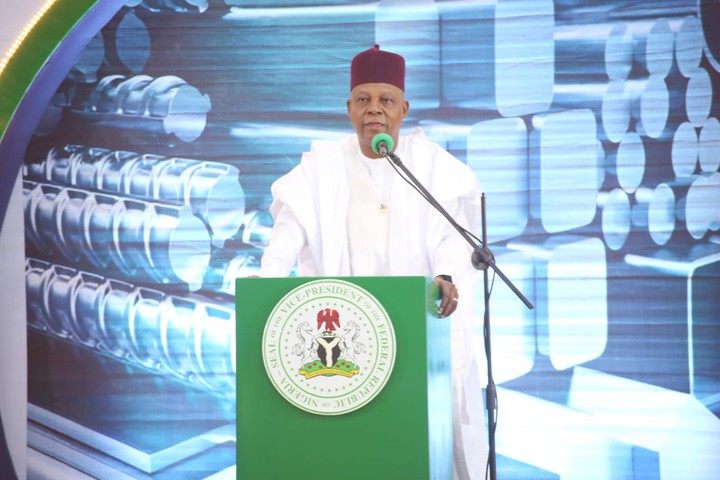The Federal Government has announced fresh incentives to boost agricultural investments, saying the move could create up to 21 million jobs across the country.
Speaking at the Food and Agriculture Organisation’s National and Subregional Hand-in-Hand Investment Forum in Abuja, Vice President Kashim Shettima explained that the reforms will expand irrigation, improve access to credit, and generate millions of rural jobs under President Bola Tinubu’s economic agenda.
According to Shettima, hunger is a “great equaliser” that shows how vulnerable people are, stressing that food security must be a priority for Nigeria.
The Vice President’s aide, Stanley Nkwocha, released details of the plan in a statement titled ‘More incentives for farmers as FG unveils new agric investment incentives.’
Some of the new measures include easier land registration, stronger credit systems, mechanised farming, and more irrigation projects to improve yields.
The new agric roadmap comes as food prices keep rising and climate change continues to affect farming, creating calls for long-term investment in the sector.
Nigeria has been urged to reduce its dependence on food imports and tackle worsening food insecurity, which got worse after fuel subsidy removal and currency changes pushed inflation higher in 2023.
Shettima noted that Nigeria has the capacity to irrigate more than three million hectares of farmland but is using less than 10 percent of this potential. He stressed that investing in irrigation could boost food production and reduce seasonal dependency.
He added that food is not just about survival but also about global security.
The Vice President also said Nigeria’s 2021–2025 National Development Plan aims to lift 35 million people out of poverty, create 21 million jobs in rural areas, and achieve food sufficiency.
He assured investors that government reforms, public-private partnerships, and agri-tech innovations will make Nigeria ready for business.
“Nigeria is open for business. Together, we can build a country where no one sleeps hungry, rural communities create wealth, and agriculture becomes the foundation of prosperity,” Shettima said.
The Minister of Agriculture and Food Security, Abubakar Kyari, also called Nigeria’s large arable land, market size, and digital growth unique opportunities for investors.
Similarly, the Minister of Budget and Economic Planning, Atiku Bagudu, said agriculture and irrigation remain key to diversifying Nigeria’s economy and boosting long-term development under the Renewed Hope Agenda.
The Gambia’s Minister of Agriculture, Livestock and Food Security, Dr. Demba Sabally, praised Nigeria’s progress in rice and cassava farming, saying other West African countries could learn from it. He also called for stronger peer review among regional nations.
Dr. Hussein Gadain, FAO’s representative in Nigeria and ECOWAS, described the Hand-in-Hand Initiative as a major programme to end poverty, hunger, and malnutrition. He praised Shettima’s leadership and commitment to transforming Nigeria’s food systems.
The Head of the EU Delegation in Nigeria, Gautier Mignot, also expressed support, noting that the EU recently invested over €80 million in agricultural value chains across seven Nigerian states.
Meanwhile, farmers have called on the government to ensure full implementation of the announced plans.
Kabir Kebram, President of the All Farmers Association of Nigeria, said policies must be backed with action to make a difference in the food system.
Peter Dama, Chairman of the Competitive African Rice Forum, Agric, also warned against “promises without delivery,” stressing that government pronouncements must be followed with real action on the ground.
The Small-Scale Women Farmers Organisation in Nigeria (SWOFON) criticised the government’s interventions, saying they have not improved food production or benefited smallholder women farmers, who supply most of the nation’s food.
SWOFON’s National Secretary, Chinasa Asonye, said many policies, including the Malabo Declaration and CADI policy, have not been properly implemented. She noted that Nigeria spends less than 2 percent of its budget on agriculture, far below the 10 percent target under the Malabo Declaration.
She also raised concerns about transparency in agric spending and lamented that programmes like the school feeding initiative, which once supported farmers, no longer benefit them.
“We will continue to speak out until government truly addresses our challenges. Smallholder farmers are still struggling on their own,” Asonye added.







